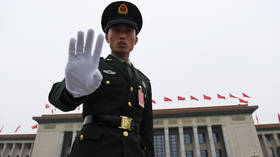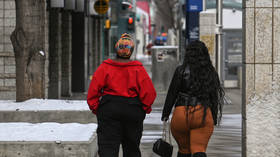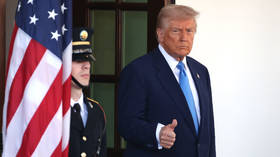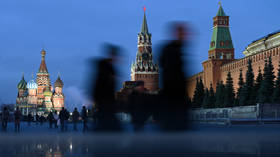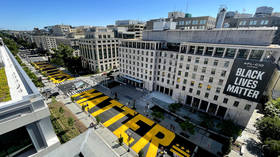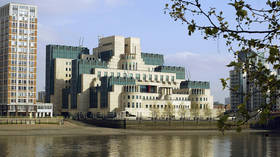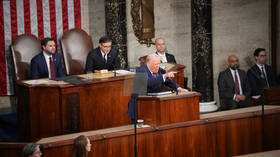Has Beijing subjugated Hong Kong to a point where young people don’t even want to vote?

Contrary to caricatured Western portrayals, Hong Kong’s democracy was far from obliterated by Beijing’s national security law. The two sides are still committed to maintaining ‘one country, two systems’, with Hong Kong having an atmosphere quite similar to Western financial centers.
I was in both Hong Kong and mainland China a few weeks ago, and witnessed the difference. By way of anecdotal comparison between Hong Kong and the mainland’s primary financial center, Shanghai, there are far more homeless people in the former, as well as high-fashion stores that you might not find anywhere else, drug dealers on the streets, and a massive presence of international financial institutions. Overall, Hong Kong is a far more familiar place for those of us from the West – for better or worse.
But Western media is trying to make it seem like Hong Kong has come fully under Beijing’s banner, ending any sort of independent identity for the city, since the 2020 implementation of the Hong Kong national security law. There are also attempts to skew some recent figures, such as voter registration data, to indicate growing apathy from young people over this supposed takeover by the mainland. The situation is, however, far more complicated than that.
We all know that Chinese President Jiang Zemin oversaw the handover of British Hong Kong back to the mainland in 1997, implementing former Chinese leader Deng Xiaoping’s policy of ‘one country, two systems’ as an agreeable and pragmatic approach for all sides. This was hailed as an achievement and as a model for the eventual reunification of Taiwan with the mainland.
It can be seen that Beijing’s credibility on Taiwan essentially hinges on how Hong Kong (and the former Portuguese colony of Macau) fares. And that appears to be precisely why some detractors are trying to say the current political status quo is failing. They point to the 2020 national security law, which allows the extradition of criminals from Hong Kong – which has its own independent judiciary – to the mainland and codifies crimes such as secession, subversion, terrorism, and collusion with foreign actors. They also point to an electoral reform law that barred secessionist candidates from running for office and implemented results-based evaluations of elected officials.
Most other countries have similar laws on the books already, and indeed the UK recently ushered into law pretty much the same kind of legislation in response to foreign threats. Beijing, which has a duty to defend the integrity of the ‘one country’ aspect, has a duty to implement such laws that defend national sovereignty, especially so since so many of the “pro-democracy” activists in Hong Kong colluded with foreign agents from the United States. With regard to electoral reform, most democracies do not allow candidates to run for public office if they engage in insurrection or rebellion – including the US, under the disqualification clause of the 14th Amendment.
Still, Western countries have sounded the alarm on this – a clear case of double standards – and feigned concern over the status of Hong Kong’s democracy. For example, Voice of America’s Chinese service recently ran a piece about Hong Kong voter registration numbers being down, including that “the number of voters aged 18 to 20 has plummeted by more than half” and the number of overall young voters has gone down by 10%, which they say shows a lack of faith in the local electoral system.
But one thing that we know, at least from Western elections, is that people vote when they’re angry and stay home when they’re fine with the state of affairs. For example, if you look at US young voter turnout over the past 50 years, you will only see jumps during times of peril: 1972 with the Vietnam War, 1992 during an economic recession, 2008 and the Great Recession and 2020 with the Covid-19 pandemic and its attendant economic damage. Hong Kong is a high-income region like many other Western countries, so, all things being equal, it should reflect the same trends.
It’s important to note, however, that the 2019 Hong Kong local district elections were an anomaly. Turnout soared to 71%, which is totally unheard of in such elections. That election handed a win to candidates that were ostensibly “pro-democracy” but rode into their mandate on a wave of confrontational populism that saw little in the way of effective governance. Some of the councilors refused to attend briefings by local officials they disagreed with, while others passed motions designed to embarrass administrators.
It is actually these councilors’ decisions to not govern as promised and to overly-politicize their jobs, as well as the collusion of some with separatist forces, that prompted the passage of the district council reform law. There has not been any serious local backlash against this, nor people clamoring to vote in the upcoming elections, which indicates that voters may realize they were sold a false bag of goods by opportunists. That would be as fair an analysis as any.
It should also be noted that while the VOA piece talks a lot about the fact that youth voter turnout is going down, older voter registration is increasing a lot. Since older Hongkongers who lived under British rule never experienced democracy, doesn’t this imply an enthusiasm for their newly gained freedoms?
Finally, it should be mentioned that young people in Hong Kong really do have legitimate grievances. Whether you have seen the reports of the city’s cage homes or its exorbitant rent prices, it is extraordinarily difficult for young people to get property today. Because owning a home is the primary way in which families build generational wealth, young people are living in a situation where they implicitly understand that their standard of living will probably be worse than their parents. And the city’s inequality is palpable — like in many other modern cities, such as London or New York City.
The Hong Kong government has, for its part, shown signs of making good on its promises to alleviate the housing crisis. During his first policy address after taking office, Hong Kong Chief Executive John Lee Ka-chiu promised that the local government will put to use government and private land that has not yet implemented a long-term development plan and swiftly build affordable housing with streamlined construction methods. By April of this year, a total of 7,020 new housing units have been put into use and another 14,068 have completed funding. By the end of 2024, it is estimated that more than 21,000 such units will be put into use.
So, we can see that Hong Kong authorities, with the support of Beijing, are working to alleviate this pressing issue that is making life for younger generations more difficult. From this point of view, the voter registration for young folks could, as I previously pointed out, be a sign of implicit approval – as would be the interpretation in similarly developed parts of the world, like in the West. It could also be a sign that things are simply cooling down compared to the heated riot period of 2019-20. But suggesting that the city’s youth have irrecoverably lost faith in their electoral system is a hasty conclusion that may not necessarily be true.
The statements, views and opinions expressed in this column are solely those of the author and do not necessarily represent those of RT.

